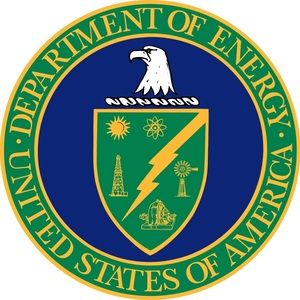
The U.S. Department of Energy Bioenergy Technologies Office announced $29 million in funding to drive research, development, and demonstration of low-carbon-intensity, purpose-grown energy crops critical to accelerating a clean energy economy. The Regional Resource Hubs for Purpose-Grown Energy Crops funding opportunity announcement (FOA) will advance a domestic supply chain of alternative carbon sources necessary to produce biofuels and bioproducts to decarbonize the transportation and industry sectors, as well as innovate and grow the U.S. agricultural industry.
The FOA will support DOE’s Sustainable Aviation Fuel (SAF) Grand Challenge goal of enabling production of three billion gallons of SAF annually by 2030 and 35 billion gallons annually by 2050, enough to meet 100% of the projected U.S. aviation fuel demand. It also aligns with the DOE Clean Fuels & Products Shot™ launched in 2023. The Clean Fuels & Products Shot™ focuses on decarbonizing the fuel and chemical industry through alternative sources of carbon to advance cost-effective technologies with a minimum of 85% lower greenhouse gas emissions by 2035.
“Investing in and transitioning to an equitable bioeconomy is a top priority for the Biden-Harris administration,” said BETO Director, Dr. Valerie Sarisky-Reed. “Ramping up energy crops, such as switchgrass, provides not only a sustainable supply of domestic feedstocks, but the innovation we need to accelerate affordable and reliable clean fuel production to reduce greenhouse gas emissions.”
The FOA supports one topic area focused on the advancement of low carbon-intensity, purpose-grown energy crops across varied agronomic and geographic landscapes through the generation of data and research findings. Topic Area 1 includes:
Subtopic Area 1a: Algae (e.g., microalgae, macroalgae, and cyanobacteria)
Subtopic Area 1b: Herbaceous Energy Crops (e.g., switchgrass, miscanthus, energycane, wheatgrass, and high-biomass sorghum)
Subtopic Area 1c: Intermediate Energy Crops (e.g., carinata, pennycress, and camelina), and
Subtopic Area 1d: Short-Rotation Woody Crops (e.g., hybrid poplar and shrub willow)
These focus areas were identified through the SAF Grand Challenge Roadmap and the FY23 workshop on Deploying Purpose-Grown Energy Crops for SAF as near-term RD&D needs.
Applicants selected for funding will become members of the new DOE Regional Biomass Resource Hub Initiative (RBRH), led by Idaho National Laboratory (INL). INL will coordinate collaboration amongst awardees to share experimental plans, report data, and collectively achieve the funding objectives. Awardees will be grouped (by Subtopic Area and by logical geographic regions) to coordinate feedstock data standards and procedures, and to collectively overcome regional resource mobilization challenges and barriers. The RBRH groups will also work alongside a wide range of stakeholders, including national laboratories, universities, regional landowners and farmers, policy makers, among others, to ensure the RBRH is meeting the needs of the industry and communities they serve.
DOE intends to award two to five financial assistance awards in the form of cooperative agreements lasting from four to 10 years under this FOA. FOA concept papers are due by 5:00 pm ET, on March 14, 2024, and the full application deadline is 5:00 pm ET, on June 13, 2024. View the full FOA on EERE Exchange to register and apply. The full solicitation with additional information on applicant eligibility is also available on Grants.gov. Go to BETO’s funding announcement page for other upcoming funding opportunities.
Teaming Partner List
BETO has compiled a Teaming Partner List for this FOA to encourage collaboration and facilitate the formation of project teams. The list allows organizations wishing to apply for funding to explore partnering with other prospective applicants. Partnerships can provide additional expertise and resources to successfully meet FOA goals. Please include the following information in your partner list submission:
Topic Field - Please enter the Subtopic Area you are interested in. If you would like to be included in multiple Subtopic Areas, please complete separate submissions.
Background, Interests, Capabilities Field - Please include information about your organization type/characteristics in the “Background, Interest, Capabilities” field to help other participants identify your expertise and resources. BETO also seeks applications from diverse teams of minority-serving institutions (MSIs), including Historically Black Colleges and Universities (HBCUs), Minority Business Enterprises, Minority-Owned Businesses, Woman-Owned Businesses, Veteran-Owned Businesses, and tribal entities; workforce education and training providers; and labor organizations.
Any organization that would like to be included on this list should submit information via the Teaming Partner List on EERE exchange.
Disclaimer: By submitting a request to be included on the Teaming Partner List, the requesting organization consents to the publication of the above-referenced information. By enabling and publishing the Teaming Partner List, EERE is not endorsing, sponsoring, or otherwise evaluating the qualifications of the individuals and organizations that are self-identifying themselves for placement on this Teaming Partner List. EERE will not pay for the provision of any information, nor will it compensate any applicants or requesting organizations for the development of such information.
Technology Verification
All applications selected for award negotiations under this FOA are required to participate in a verification process led by DOE’s identified external third-party non-conflicted verification team. This verification process provides technical assistance to both BETO and the project by providing an in-depth analysis of key technical and economic metrics to ensure transparency and increase the likelihood of project success.
Regional Biomass Resource Hub Initiative
The Regional Biomass Resource Hub Initiative (RBRH) is a new initiative from DOE designed to accelerate the sustainable mobilization of purpose-grown energy crops to create clean fuels and products. The RBRH’s mission is to identify and validate market-driven regional strategies that help mobilize low carbon intensity, purpose-grown energy crops across varied agronomic landscapes. RBRH does this by generating modeling tools, data, and guidelines that support feedstock supply chain development.
The RBRH is led by Idaho National Laboratory researchers with expertise in feedstock production, integrated landscape management, carbon intensity measurement and supply chain logistics. Learn more about this new DOE initiative.